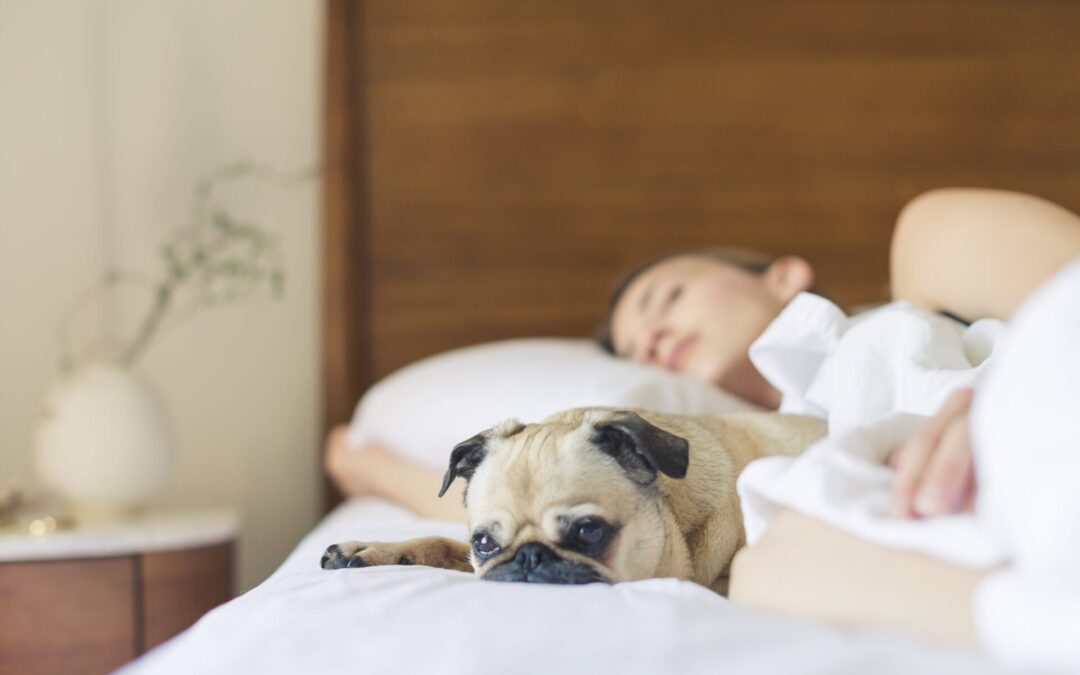Have you been struggling to fall asleep lately? Spending nights staring at the ceiling as your mind races through improbable scenarios beyond your control? Far from alone with this problem, sooner or later we all encounter periods of sleepless nights. With many years of sleep related experience, let Land of Beds help guide you back to the land of nod, quickly.
After reading you will be able to:
- Know how long it should take you to fall asleep
- Use top tips and advice on getting to sleep quicker
- Appreciate the role lifestyle plays in your ability to fall asleep
- Understand why you might be having difficulties falling asleep
- Comprehend the reasons why you might be struggling to sleep
Are You Having Trouble Getting To Sleep Quickly?
We might not be able to do much about the root causes of night-time anxieties such as plagues and the economy, but we do have some techniques for making the experience of getting to sleep a little easier and quicker.
So whether your worried about your job, your relationship or just that you may have left the stove on, we can help you get back to sleeping like a log again.
Before delving into the how and why of sleep difficulties, it is important to note that you shouldn’t punish yourself for feeling like you spend more time trying to fall asleep than actually sleeping. As we said, you’re not alone. In the UK 36% of adults struggle with sleep on a weekly basis. Many of the people you see walking down the street will at some point experience a sleepless night of tossing, turning, and generally feeling terrible.
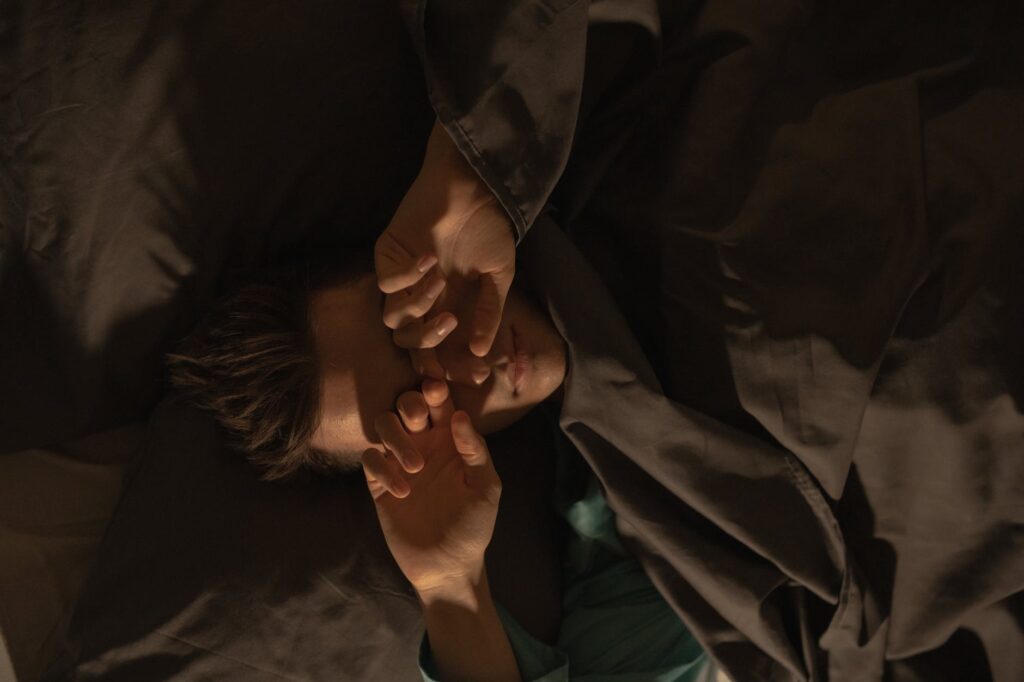

Why Can’t I Get To Sleep Quicker?
Contrary to popular myth, it’s not very common to be able to hop into bed and fall asleep as soon as your head hits the pillow. Most of the time you need to set your evening up for a successful night’s sleep, which starts by creating a wind-down routine for the mind and body to get used to the idea of drifting off into a slumber.
What Are The Most Common Reasons For Not Getting To Sleep Quicker?
There are a whole host of reasons why you might be finding sleep a challenge, which can range from simply consuming the wrong foods to failing to adhere to a consistent night time schedule. Some of the most frequent slumber offenders include:
Caffeine Consumption
On average the UK drinks 95 million cups of coffee daily. Many of us consume it more than once a day, and several people tend to have one later in the afternoon as a post lunchtime perk up.
The problem with drinking so much coffee, and with consuming it so late in the day, is that it keeps the body alert long into the evening, which makes nodding off difficult,
If you absolutely insist on continuing your love affair with coffee (we know we all will), then we advise to at least drink it responsibly. Make sure you only have it in the morning, don’t drink too much of it, and consider switching over to decaf for the afternoon.
Late Night Problem Solving
Many of us often have trouble falling asleep when a problem pops into our heads. Even those of us who consistently get a good night’s sleep aren’t immune to the odd restless night, particularly when life offers up some challenges. A huge inconvenience when trying to sleep, we usually try to solve the issue by repeatedly running it through our heads, analysing it, blowing it out of proportion, and generally getting caught up on the worry train.
If something is important enough to keep you awake, then it should not be ignored. Take some time in the mornings to consider anything that’s bothering you. Think about it on a walk, or in the shower, and then write it down in a journal. By scheduling time for dealing with it, your mind is less inclined to turn attention to it during lights-out.
Just be sure to think about less stressful matters closer to bedtime if you want to get to sleep quickly.
Clockwatching
This is a sure-fire way to kill off any chance of getting to sleep quickly. If you habitually clock watch as you’re trying to nod off then you’re inadvertently reprogramming the body’s circadian rhythms to a different time. Although it is incredibly tempting to frequently check the time when trying to sleep, resisting the urge to do so will be of more use – after all, what do you need to know the time for, have you got a hot date at 2:55 am?
Our advice is to make sure the alarm has been set and then turn the clock to face the wall.
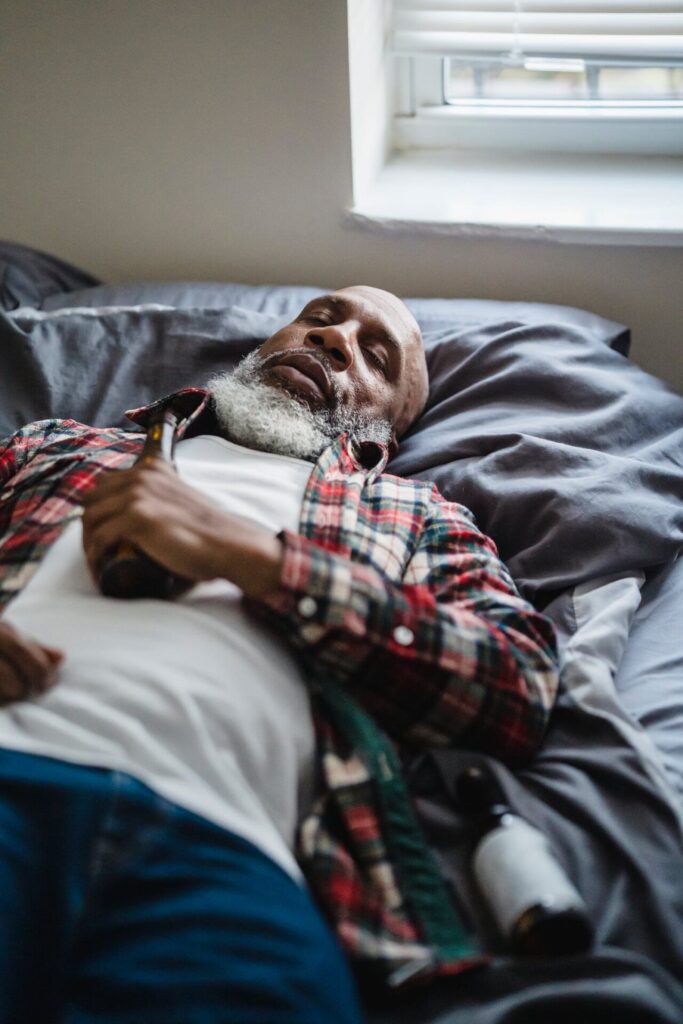
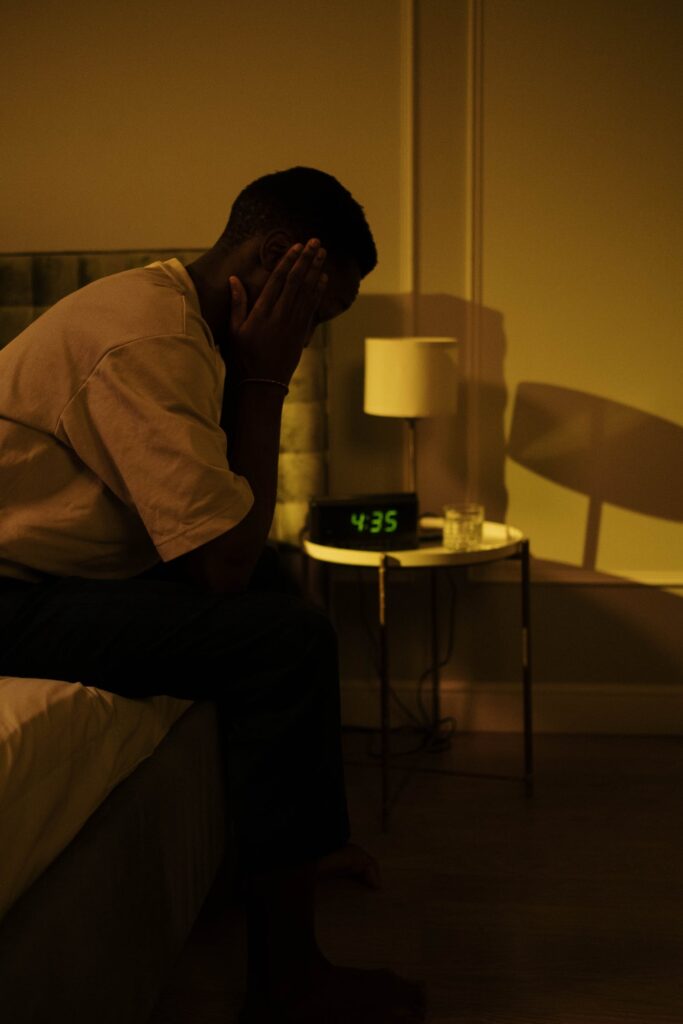
Drinking Alcohol Too Late
Might be time to end those night caps. While some tend to think of alcohol as an aid to a good night’s rest, the influence drink has on sleep is in reality quite devastating. Alcohol interferes with our REM sleep, which in turn causes us to feel groggy the next morning. Initially, we might feel a little sleepy after drinking, but unfortunately that’s only a short-term effect.
To reduce sleep disruptions, it’s advised that you stop drinking at least three hours before you want to snooze.
Room is Too Light
When your eyes are exposed to light at night-time the brain is led to thinking it’s time to wake up. For an ideal night’s sleep, you need to make your room as dark as possible.
Eliminate any lights, including charging or stand-by LEDs from the TV or other electronic devices to give yourself a better chance of getting to sleep quickly.
How Long Should It Take To Fall Asleep?
Do you think you’re a healthy sleeper? Or do you think there’s some room for improvement? Take a look at the table below to find out:
| Time it Takes to Fall Asleep | Type of Sleeper |
| Instantly – as soon as your head hits the pillow | Contrary to popular belief, this is too quick. Chances are, you’re sleep-deprived and need to take steps to improve the quality and quantity of your sleep. *There are exceptions to every rule, if you fall asleep within a few minutes and wake up feeling refreshed this might be normal for your body. |
| Within 10-20 minutes | You’re a healthy sleeper, this is the normal amount of time it takes an adult to fall asleep. |
| More than 20-30 minutes | If it takes you more than 30 minutes to nod off then your sleep efficiency drops. This is an indicator that your sleep health is under pressure. |
11 Tips To Get To Sleep Quickly
Struggling to fall asleep is not only frustrating, but can also increase anxiety, which can make it even harder to fall asleep in future. Let’s help to reduce the domino effect of a bad night’s sleep by looking at 11 of the best ways to nod off…
1. Turn Off The Tech
With modern tech being more accessible than ever, surfing the web or scrolling on social media is as easy as simply grabbing your smartphone. Whilst we all love checking in on friends and our favourite celebrities, limiting access to screens before bedtime can help drastically improve the quality of sleep. Many devices emit a blue light which mimics sunlight, tricking your body into thinking it’s time to get up.
The best way to combat this is with some good old-fashioned screen-free entertainment before bed, such as listening to audiobooks or podcasts, or even reading a book.
Working from home? Then our guide to improving sleep quality when remote working should be of use.
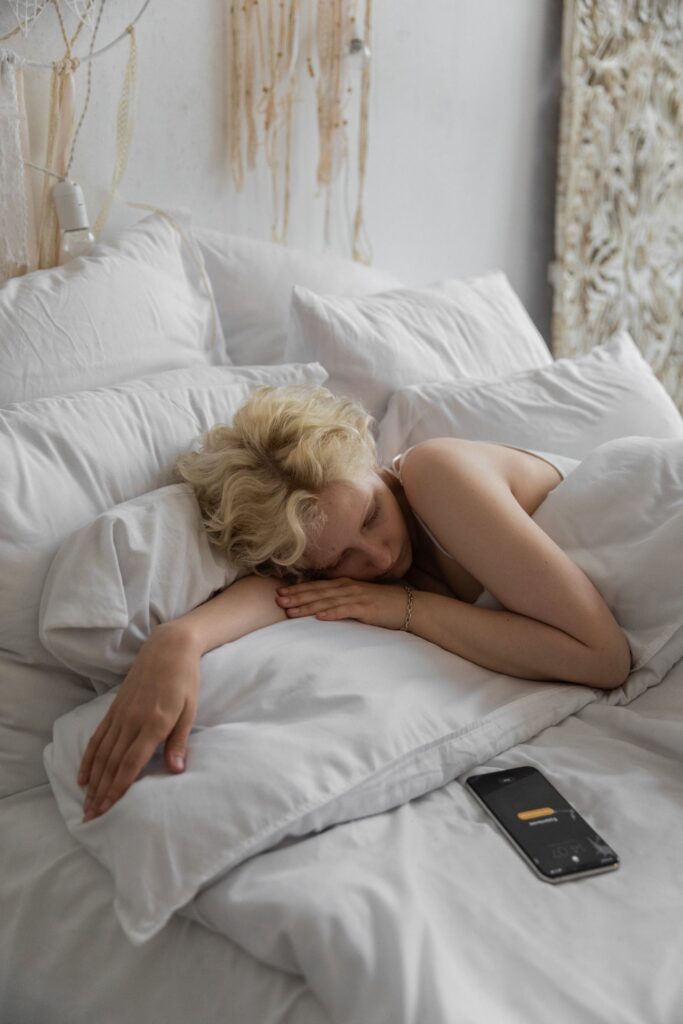

2. Have A Warm Bath Or Shower To Encourage Getting To Sleep Quicker
We all know that having a warm bath or shower can be incredibly relaxing, but did you know that they can help you fall asleep faster? Studies have shown that those who partake in bathing a couple of hours before bedtime tend to fall asleep more rapidly than those who don’t.
And, we assume, are much cleaner.
3. Meditate Before Bed
Research has shown that spending time meditating before bed can be a great way to overcome insomnia. By taking some time to clear your mind from the stresses of the day, you can focus more on the present moment and relax. You might also find it useful to keep a mindfulness journal to write all those worries or intrusive thoughts down, getting them out of your head before bedtime.
Homena homena homena Zzzzzzzzzz

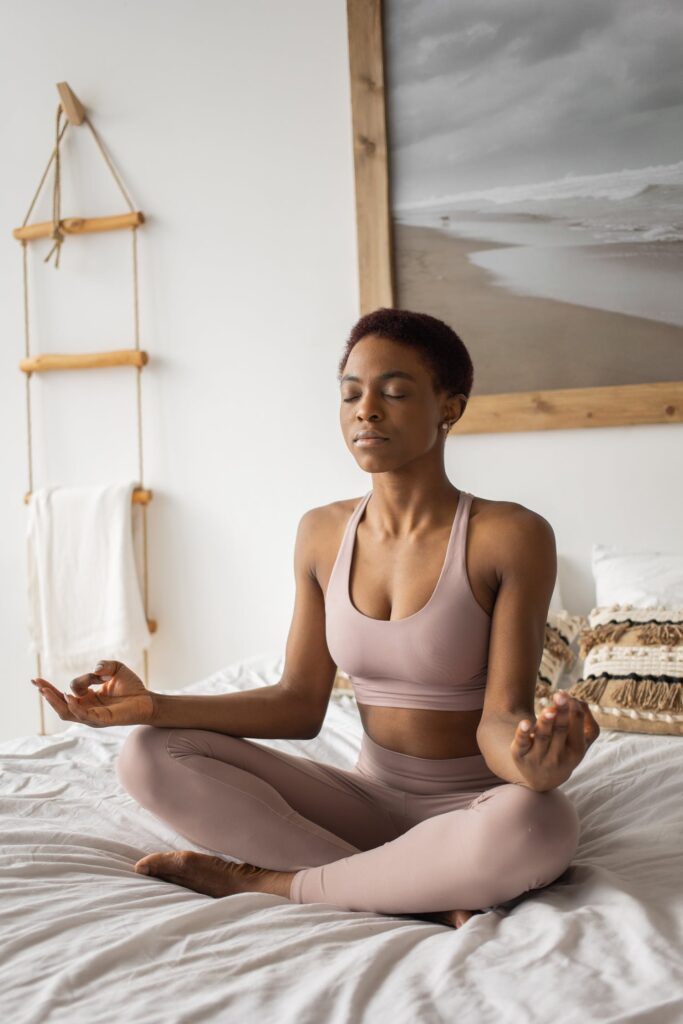
4. Create a Bedtime Routine
Creating a consistent bedtime routine can help to set the scene for your internal body clock so it knows when to start winding down for the night. You don’t need an all-singing, all-dancing bedtime routine – it can be something simple which caters to your self-care needs and preferences. For example, you could listen to a relaxing pre-bed music playlist, enjoy a nightly bath, or sip on some camomile tea.
Whatever it is, the important part is that by doing it on a regular basis it sends a message to your mind and body that sleep time is coming.
5. Forget The Clockwatching
As we mentioned earlier, although it can be tempting to check the time when you wake up in the middle of the night, it isn’t good for sleep. Turning the clock away from your line of sight will help to reduce your sleep anxiety.
Additionally, if you keep your phone next to your bed then make sure it is face down so as to avoid glimpsing the time on it, or even worse, starting a late-night scrolling binge.
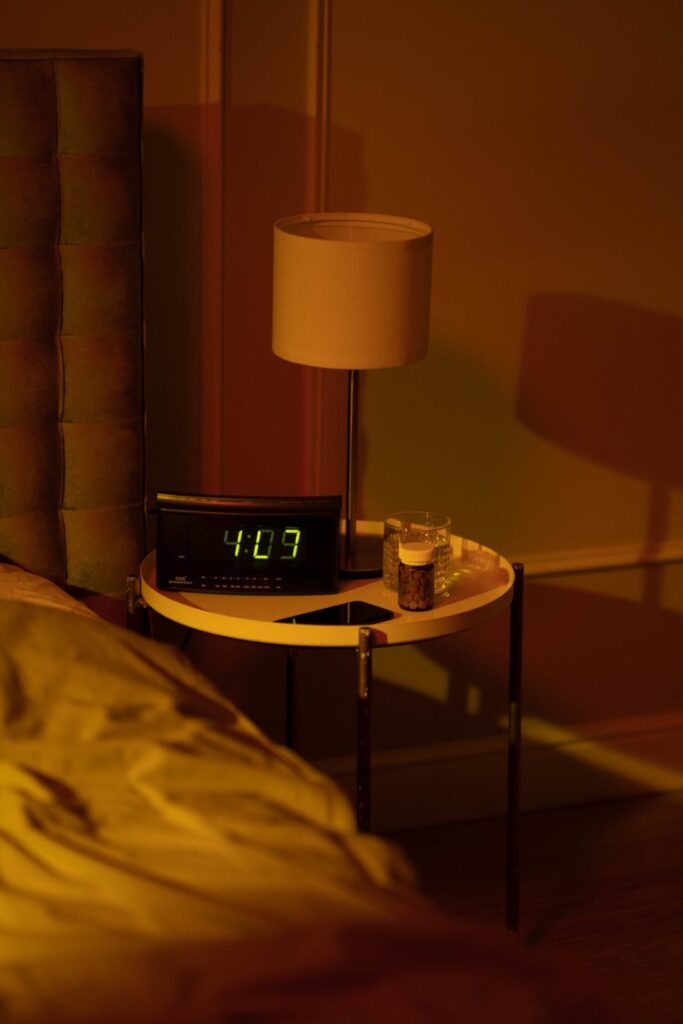

6. Control The Bedroom Temperature
We can’t sleep well if it’s too cold or too hot.
A cold bedroom means you’ll shiver, and your body will need to work harder to warm up. A hot bedroom means that you’ll be restless, which will increase tossing and turning as your body tries to cool down.
To get a good night’s sleep, your bedroom needs to be around 16-18 degrees Celsius. This is because our bodies naturally dip in temperature as we prepare to sleep, so having a cooler bedroom promotes slumber and even falling asleep quicker.
7. Bedtime Reading
The recommended reading time before bed can vary, but the common thought is for you to read until you start feeling drowsy. To begin with, try reading for around 20 minutes a night. Reading engages the mind, which helps promote a strong cognitive function that reduces mental chatter – leading to a quiet state of relaxation before bedtime.
Just be sure to use a bookmark, as trying to remember what page you’re on while nodding off isn’t always reliable.
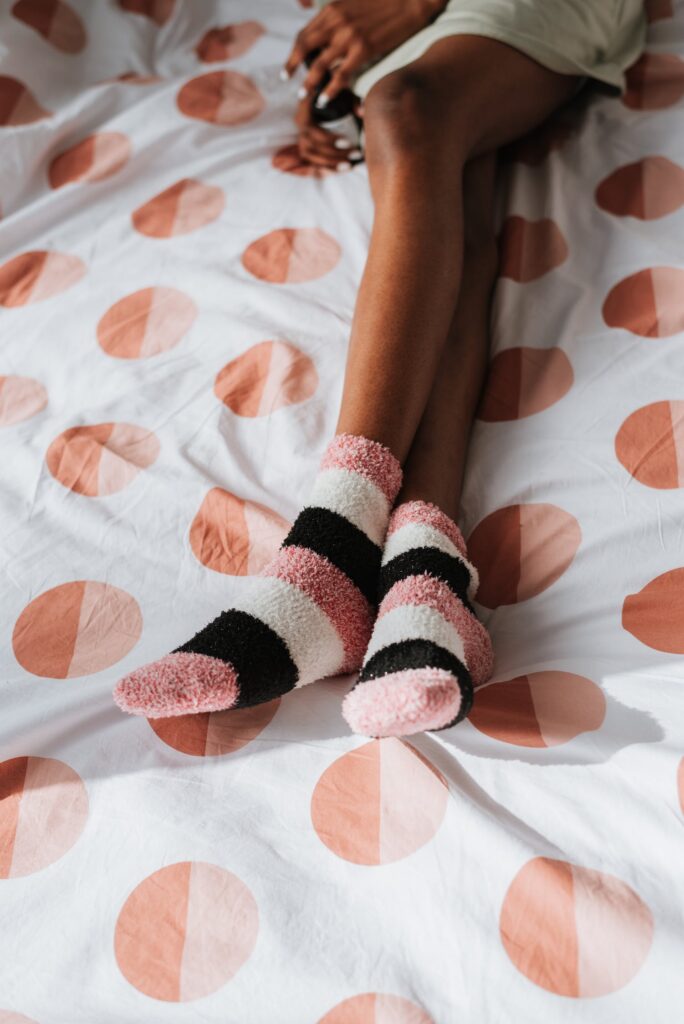
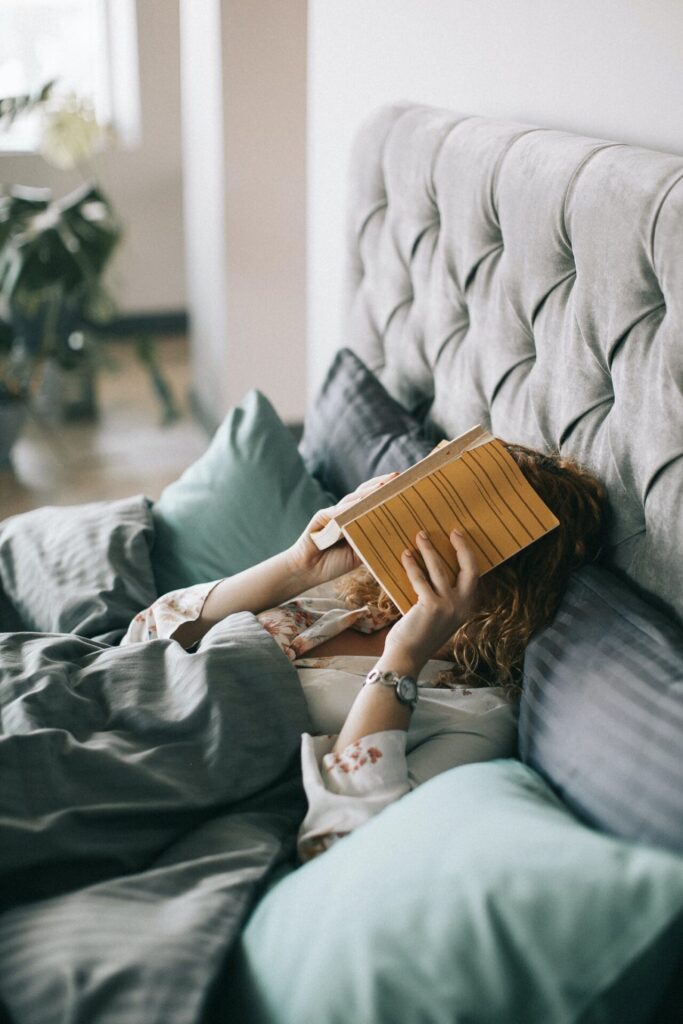
8. Slip Into Some Socks
You might be getting cold feet about going to sleep, literally.
Research has shown that when your feet are cold your blood vessels constrict, which reduces blood circulation and encourages your brain to stay alert. We have a lot more information about how wearing socks and other items of clothing can affect your sleep, but essentially, adding a pair of socks to your bedtime wardrobe can help the blood vessels in your feet dilate, letting your brain know it’s okay to start snoozing.
Also, it’s another opportunity to look fashionable. Strike a pose!
9. Make Sure You’re Comfortable
It can never be stressed enough just how important comfort is to getting a good night’s rest. We have written before on how your environment plays a part in falling asleep, but if you’re still struggling to sleep then consider how relaxing your mattress, pillow and duvet are. Many people can often assume that the softer the mattress, the more comfortable they will be. While this is true for some, for others, a firmer mattress is best. Be sure to figure out the type of surface you prefer before making any purchasing decisions.
Ask yourself ‘when was the last time I got a new mattress?’ If the answer is more than eight years ago, then you likely need a new mattress. Over time even the best ones can start to sag and become difficult to sleep on.

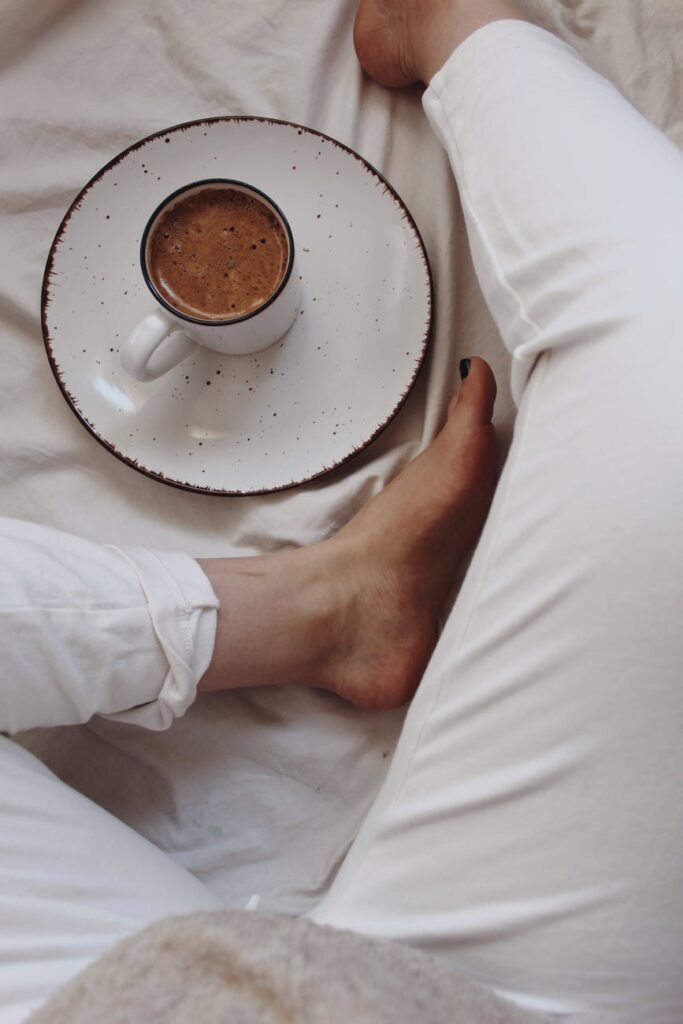
10. Cut The Caffeine Before Bed
As we discussed previously, while caffeine might be the only thing helping you get out of bed in the morning, it’s more of a problem when it comes to getting to sleep at night. Research shows that for a great night’s sleep free from caffeine related disturbance, you should be putting your favourite cup down at least six hours before your head hits the pillow.
This means that if you want to be catching z’s by 10pm then you’ll have to enjoy your last cuppa at 4pm.
Unless you switch to decaf, of course. Slurp.
11. Don’t Worry About Not Getting To Sleep Quickly
As the old joke goes, some people could sleep on a clothesline. Others find it much harder. Being able to nod off in a matter of minutes is uncommon. Instead of trying to sleep, focus more on the winding down period that takes place about an hour or so before bedtime. Setting up a sleep-friendly environment is the best way of letting your mind and body know it’s time to catch forty-winks.
Need Help Getting To Sleep Quicker?
Whether you’re the type of person who sleeps as soon as your head hits the pillow, or you take a little time getting there, a great bed will help you snooze all that much easier.
A good night’s sleep is essential to a well-balanced, healthy lifestyle. We may not be able to knock you out directly, but we can certainly help make you more comfortable by pairing you up with your ideal bed.
Now that you know how best to fall asleep, isn’t it time to make it just that little bit easier with a comfortable bed?
Deciding on the best bed for your needs depends on several factors.
- What type of sleeper are you?
- What temperature do you sleep best in?
- What materials are you most comfortable on?
There is no need to lose sleep over trying to choose the ideal bed and bedding for your night-time needs. Our bed experts at Land of Beds pride themselves on their specialist knowledge and ability to help you find the bed and bedding that’s best for you.
Our customer-first policy means we listen and give good, independent advice based on the needs of the individual. By pairing consumers up with ethically sourced, affordable, quality products, we provide as many people as possible with a great night’s sleep.
If you would like help being connected with the bed that will best aid you in getting to sleep, feel free to get in touch with us on 01928 242829

